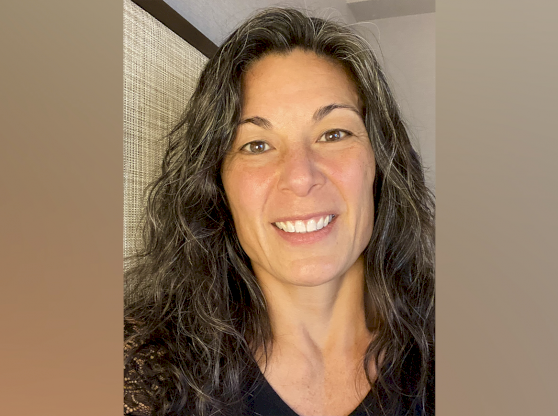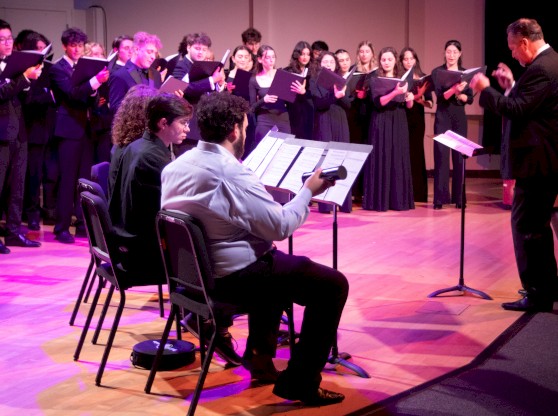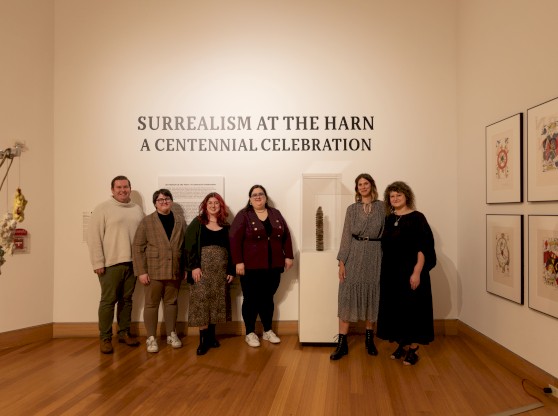GAINESVILLE, FLA. APRIL 16, 2024 – The Center for Arts, Migration and Entrepreneurship (CAME) at the University of Florida College of the Arts is thrilled to announce the recent awarding of a $439,336 grant from the Robert Wood Johnson Foundation to support the Atunda project: “An AI Deep-Tech Solution to Economic Health and Mobility.” This interdisciplinary research collaboration with the UF Digital Worlds Institute explores the intersection of Dance and AI, asking “how can AI help protect the intellectual property (IP) of dancers and create economic health and mobility in this digital age?”
The visionary behind the Atunda project is Qudus Onikeku, former CAME Maker in Residence (2020-2023) and Founder and Artistic Director of The QDance Center in Lagos, Nigeria. Together with project directors Angelos Barmpoutis, Digital Worlds Professor and coordinator of research and technology, and CAME Director Oṣubi Craig, the team is leveraging UF’s computing resources and cutting-edge technology to analyze dance moves across cultures with the goal of building a dance data bank for deep learning and to help protect IP for future dance makers.
"Through interdisciplinary collaboration and cutting-edge technology, this project serves as a testament to the transformative power of technology when harnessed for the greater good, catalyzing a new era where artists can thrive and flourish in the digital landscape," Barmpoutis says.
Craig adds, “[This is a moment] where conversations are happening around technology and artists rights, the effects of AI on the arts space in general, and around data rights and representation. We see ourselves as a place to lead those conversations and unpack the complicated issues before us. We're talking with economists here on campus about the impacts of the creative economy on this state. We’re situated in a space that few others are, and I think we have an opportunity to explore in really powerful ways.”
The rise of viral dance moves across digital media in recent years has revealed how large corporations benefit from creative and cultural appropriation without compensation—raising questions of ownership and wealth disparity.
“We are deliberately thinking through the very notion of wealth redistribution,” writes Onikeku, “and asking very poignant questions on the possibility of wealth pre-distribution using AI-driven movement recognition and classification methods.”
By democratizing emerging technologies, Atunda directly responds to systemic barriers preventing individual artists from owning, protecting, and profiting from their creative output.
The funding opportunity from the Robert Wood Johnson Foundation sought innovative proposals to advance health equity through a broad spectrum of contributors—including scientists, artists, and community leaders—with ideas that can significantly improve health equity and wellbeing well into the future.
Contact: Marie Kessler, Operations and Program Manager, UF Center for Arts, Migration, and Entrepreneurship
Phone: 352-294-9059
Email: came@arts.ufl.edu
Video caption info: Qudus Onikeku (UF CAME Maker in Residence, 2020-2023) demonstrates the motion capture technology that powers the Atunda project. Together with project directors Angelos Barmpoutis (UF Digital Worlds Professor and coordinator of research and technology) and CAME Director Oṣubi Craig, the Atunda team is leveraging AI computing resources at the University of Florida to analyze dance moves across cultures with the goal of building a dance data bank for deep learning and to help protect IP for future dance makers.


